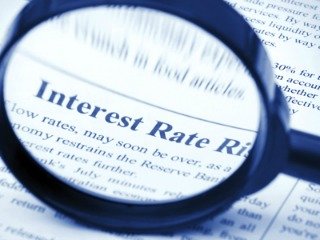So you’re ready to make your first leap into property investment but have you planned for the full financial costs that going down this route entails?
Many first time landlords make the mistake of believing that once they’ve made the initial purchase of their buy-to-let property then they just need to set aside a small amount of funds for incidental expenses. In reality, the costs involved in managing rental properties can be completely unpredictable and new landlords in particular don’t always set enough funds aside to manage these ad hoc costs.
No-one can predict the unpredictable, So private landlords need to have a clear understanding of what a typical expenditure on a buy to let property could look like to ensure they have the funds in place should the unexpected arise. We’re not talking about extreme situations here but the bare bone expenses that landlords need to account for each year.
Basic Landlord Costs
• Mortgage payments and interest: the cost of a mortgage applies to most landlords. There aren’t many landlords who won’t require a buy to let mortgage to fund their property investment. The cost of the mortgage depends on many factors, but many landlords opt to have an interest only buy to let mortgage to free up cash flow for further investment or planned maintenance costs.
• Landlord building insurance: this is not a legal requirement for landlords but is essential for any landlord with a mortgage. Costs will vary depending on the size and location of the property, but it is imperative landlords get a specialist landlords’ policy as a standard policy won’t be sufficient for your needs.
• Legal requirements: you will need to budget annually for a Landlords Gas Safety certificate and it is advisable to budget to have a boiler service done at the same time to reduce the risk of costly boiler breakdowns. Electrical condition reports are now required in Wales and can last up to 5 years or on change of occupancy. Energy Performance certificates are required by law, however if you have just purchased the propriety, the previous owner would have had to obtain one which you can use as they are valid for 10 years. Legionella risk assessments are a relatively new expense landlords have to factor in for, ensuring their properties are free from the risk of legionella disease.
• Professional inventory service: many landlords opt to do their own inventory and condition report, however it can be more time efficient (and there for cost effective) to instruct a professional inventory clerk. Costs depend on the size of the property and if it is furnished or not. Landlords need to consider the long term benefit of having someone else taking on the responsibility for documenting the condition of the property at the start and end of each tenancy.
• Tenant acquisition: most private landlords will need to find tenants for their property (unless they are comfortable letting to friends and family or doing their own referencing of strangers). The cost of tenant acquisition can vary depending on whether you are planning to advertise yourself or employ the services of a professional letting agency. The difference is that there are no guarantees if you choose to find a tenant yourself and there is the time it takes to advertise, conduct viewings, set up tenancy agreements and manage tenancies once the tenants are in. If you employ an agency, all of these issues are dealt with directly by the agent at a predetermined cost (which will vary from agency to agency and whether you go for a fully managed or let only service).
• Landlord Licensing: by November 2016 all landlords operating in the private rental sector need to register under this scheme (known as Rent Smart Wales for landlords operating in Wales). Landlords who are planning to manage the properties themselves will also have to become licensed which also comes at a cost, plus you have to undergo training by an approved training provider with costs varying depending on individual training providers.
Other Costs Landlords Need to Consider
In addition to the above costs, private landlords should also take into account the following potential costs and expenses:
• Maintenance and Repairs: landlords simply cannot avoid these costs and unfortunately they are virtually impossible to predict. Maintenance and repairs range from boilers, cookers or other white goods breaking down through to plumbing issues. Landlords will also have to deal with damage due to weather conditions such as wind or heavy rain causing external damage to the property. And in some instances, the tenants themselves can cause so much damage that their deposit bond doesn’t cover the cost of repairs. Setting aside funds every month will ease cash flow when things go wrong.
• Utility Bills: Generally, tenants are responsible for paying utility bills directly during a tenancy, however, some landlords may choose to offer “bills included” as part of the tenancy. If that’s the case, this should be added onto the expenses, and also reflected on the rent cost. Landlords need to be aware that they are responsible for the utilities (and council tax if applicable) during empty periods.
• Tax: in 2016 the government has started bringing in huge changes to the way that buy to let property is taxed and landlords need to be aware about how this will affect them. By 2020 the interest element of a buy to let mortgage will not be an offset able expense, which means tax will be payable on this amount. This could mean landlords are required to pay more tax than what they had budgeted for, so getting professional tax advice now is essential.
It’s because of the unpredictability of what can happen that it is so important for landlords to set aside a contingency fund to cover unexpected repairs.
There are ways of limiting unexpected costs by investing in insurance policies or landlord emergency repair services for example. Either way, landlords will still need to set funds aside for these policies but with the peace of mind that any incidents would be covered in the future.
Legal Costs
As a private landlord it is vitally important that you are protected legally. Most landlords operate legally and as such may only find themselves having to take proceedings against rogue tenants, which can occur more frequently than you may realise. These costs, if you don’t have legal cover, can be extensive, particularly when you consider the loss of unpaid rent on top of the legal expenses to evict a tenant.
Becoming a landlord isn’t as easy as it may first seem. Once you’ve worked out your initial costs, it’s important to look at these regularly, taking into account the additional costs outlined previously.
In a nutshell, your property investment will make you money if you buy the right property, for the right price, fill it with the right tenants and plan your finances well.
Professional Advice
What’s more, if you employ the services of professional letting agency, such as McCartan Lettings in Swansea, they will be able to advise more specifically to your property the costs you may need to budget for.
Some agents, again like the team at McCartan Lettings, work with their landlords giving them advice on the type of properties to buy, rental incomes and insurance policies or legal cover.
Most importantly, the agency is also responsible for finding and managing tenants and any related issues that may arise, which is a huge bonus when it comes to managing your time and your tenants’ expectations.
Hannah McCartan, Director at McCartan Lettings explains some of the key costs that landlords routinely have to cover in this video:
For further information on how a professional letting agency can help landlords to manage their property investment, please contact McCartan Lettings on 01792 430100.



